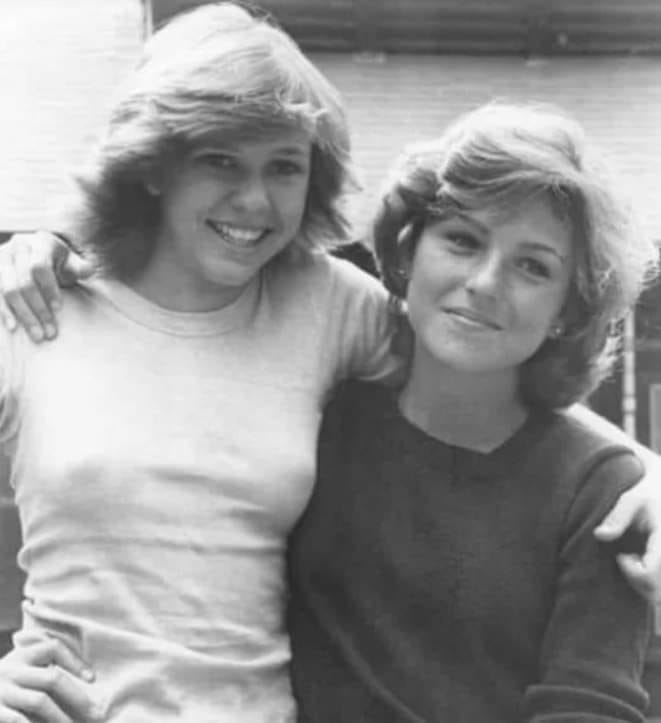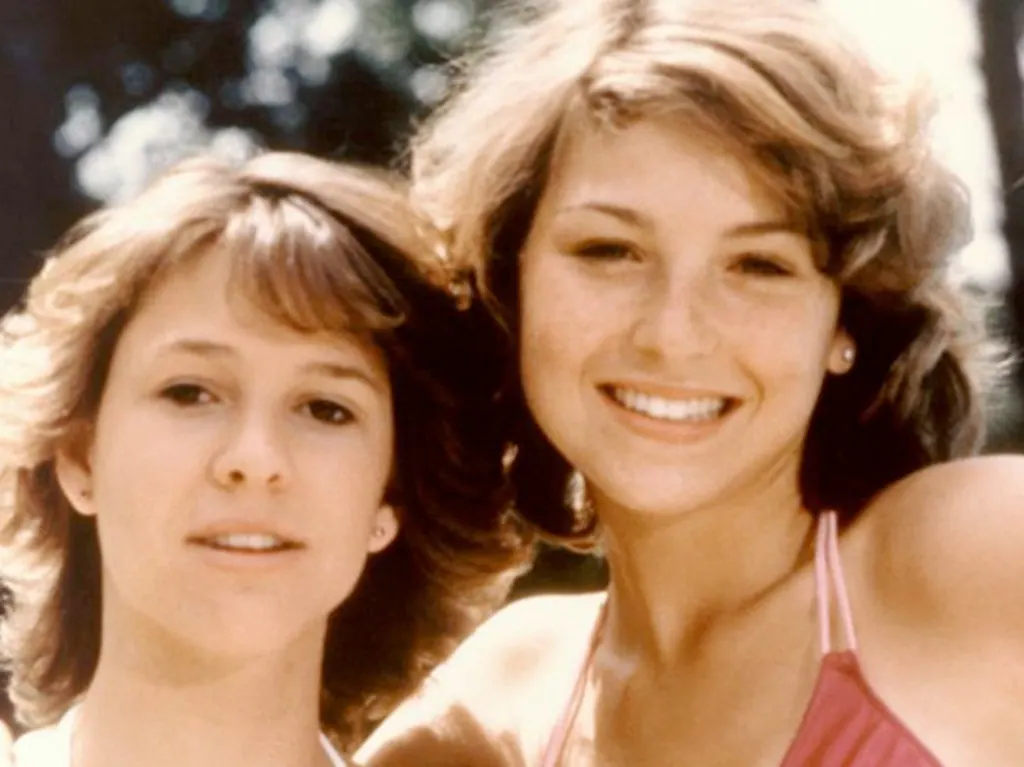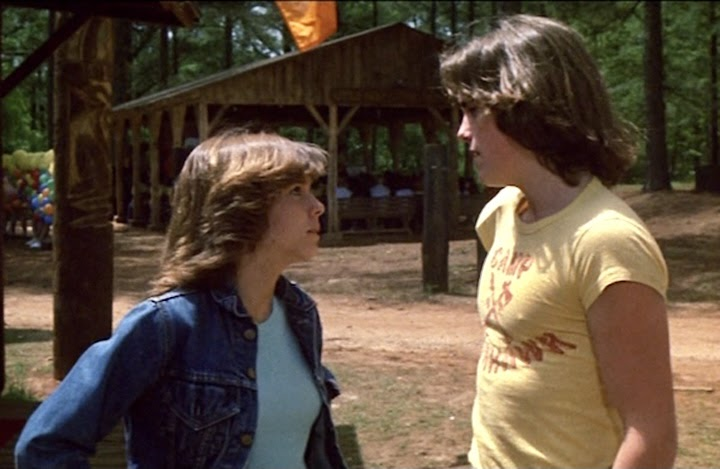Slapstick comedy, rebellious antics, and crass humor are probably what you picture when you think of 1980s teen comedies. Little Darlings (1980) stands out from the rest, though. This ostensibly scandalous story about two girls at summer camp wagering who can lose their virginity earliest becomes into a complex, emotionally charged examination of adolescence, social pressures, and self-discovery. It stars Kristy McNichol and Tatum O’Neal. Its cult classic status has been subtly earned by the intellectual narrative that underlies its intriguing premise.
A Provocative Premise with Profound Depth

Little Darlings initially looks like just another adolescent comedy. The tale revolves around Ferris (Tatum O’Neal), a wealthy but unsophisticated youngster, and Angel (Kristy McNichol), a fierce girl from a working-class family, who compete during their summer at camp. But the movie handles its topics with unexpected maturity rather than relying on shock value.
This isn’t a vulgar comedy like Fast Times at Ridgemont High or Porky’s. Rather, Little Darlings explores the emotional intricacies of maturing, examining how the pressure to live up to social norms affects individual choices. It’s more about how Angel and Ferris struggle with identity, vulnerability, and what intimacy means than it is about the competition itself.
A Refreshing Focus on the Female Gaze
Little Darlings stands out for its dedication to narrating the tale from a female point of view. This film focuses the female gaze, providing a unique and genuine look at teenage girlhood in a genre that is frequently dominated by tales that are male-centric.
For instance, rather than objectifying the boys in a scenario when the girls spy on them skinny-dipping, the emphasis is on their curiosity and friendship. Ferris’s relationship with Gary (Armand Assante) and Angel’s relationships with Randy (a teenage Matt Dillon) are similarly realistic and empathetic, prioritizing emotional bonding over physicality.
This female-forward approach, which offered a more considered and fair representation of adolescent interactions, was revolutionary for its day and is still refreshingly relevant today.
Kristy McNichol’s Captivating Performance
The way that Kristy McNichol plays Angel is simply amazing. Angel’s tough, streetwise exterior belies a weak girl who longs for love and acceptance. The film is elevated by McNichol’s ability to portray unfiltered emotion, especially during the scenes where Angel faces her fears.
Angel’s silent confession, “God, I feel so lonesome,” following her experience with Randy, is a noteworthy instance that encapsulates the contradiction between one’s own reality and society’s expectations. The discrepancy between what kids believe they should feel and what they actually go through is depicted in an open and heartbreaking manner.
Tatum O’Neal Brings Complexity to Ferris
Tatum O’Neal gives a nuanced and nuanced performance as Ferris. Ferris, who hails from a wealthy family, is presented as calm and self-assured at first, but as she negotiates her encounters with Gary, the more experienced camp counselor, her innocence is exposed.
Gary’s tactful rejection of Ferris’s approaches is handled with consideration, placing more emphasis on understanding and respect than on passing judgment. This subplot demonstrates how mature the movie is in handling teenage curiosity without taking advantage of its characters. Ferris’s journey becomes just as captivating as Angel’s when she realizes that closeness is about more than just sensuality.
A Supporting Cast Full of Personality and Charm

The ensemble cast of the movie gives the narrative heart and humor. As Sunshine, a quirky camper with hippy parents, Cynthia Nixon excels in her debut motion picture role. Whether she’s preaching against eating meat or giving out niacin tablets, her comedic timing adds humor without crossing the line into caricature.
Angel’s love interest, Randy, is portrayed by Matt Dillon with surprising tenderness. Randy’s relationship with Angel is more genuine since he is insecure, unlike the conventional teenage heartthrob. In the meantime, Jenn Thompson’s naughty camper steals the show with her antics, which include a humorous incident with a condom dispenser in the men’s restroom.
Dispelling Myths and Redefining Tropes
Little Darlings doesn’t follow the formulas that characterize a lot of teen comedy from the 1980s. Angel and Ferris’ experiences are complex and very human; they are not reduced to one-dimensional cliches. The movie also refrains from taking advantage of its masculine characters, showing Gary and Randy with respect and nuance.
Little Darlings’ humor also seems realistic. The movie finds humor in relatable moments, such as the ladies’ clumsy attempts to deal with puberty or their inflated confidence in front of classmates, rather than depending on ridiculous jokes or profanity.
Ahead of Its Time: Tackling Societal Pressures

Little Darlings was groundbreaking in its treatment of issues like peer pressure, contraception, and the double standards surrounding adolescent sexuality, even though it was released during a time when teen comedy frequently relied on raunchiness.
In a crucial scene, Angel gives Randy a condom, a little but impactful acknowledgment to the agency and responsibility of women. The way society forces young women to live up to contradictory expectations is also criticized in the movie. Although their friends criticize Angel and Ferris, the story never condemns them for their decisions; rather, it encourages compassion and understanding.
A Classic Coming-of-Age Tale
Little Darlings transcends its time even though it is based in the style and culture of the late 1970s and early 1980s, replete with a fantastic soundtrack that includes Blondie and John Lennon. Its globally relatable themes of identity, vulnerability, and self-discovery guarantee that it will be relevant for many generations to come.
The reason the movie endures is its readiness to put emotional honesty ahead of sensationalism. It serves as a reminder that stories about coming of age can have an impact without resorting to overt moralizing or shock value.
In conclusion
A moving examination of puberty, Little Darlings (1980) is distinguished by exceptional performances, subtle narrative, and a welcome emphasis on the female viewpoint. It is more than just an 80s adolescent comedy. Tatum O’Neal and Kristy McNichol give their parts nuance and sensitivity, and the film stands out from its peers for its careful treatment of adolescent relationships.
Watch Little Darlings if you’re looking for a coming-of-age tale that combines heart, humor, and emotional honesty. It is more than just a film; it is a timeless meditation on the difficulties of growing up that may have a lasting effect.



